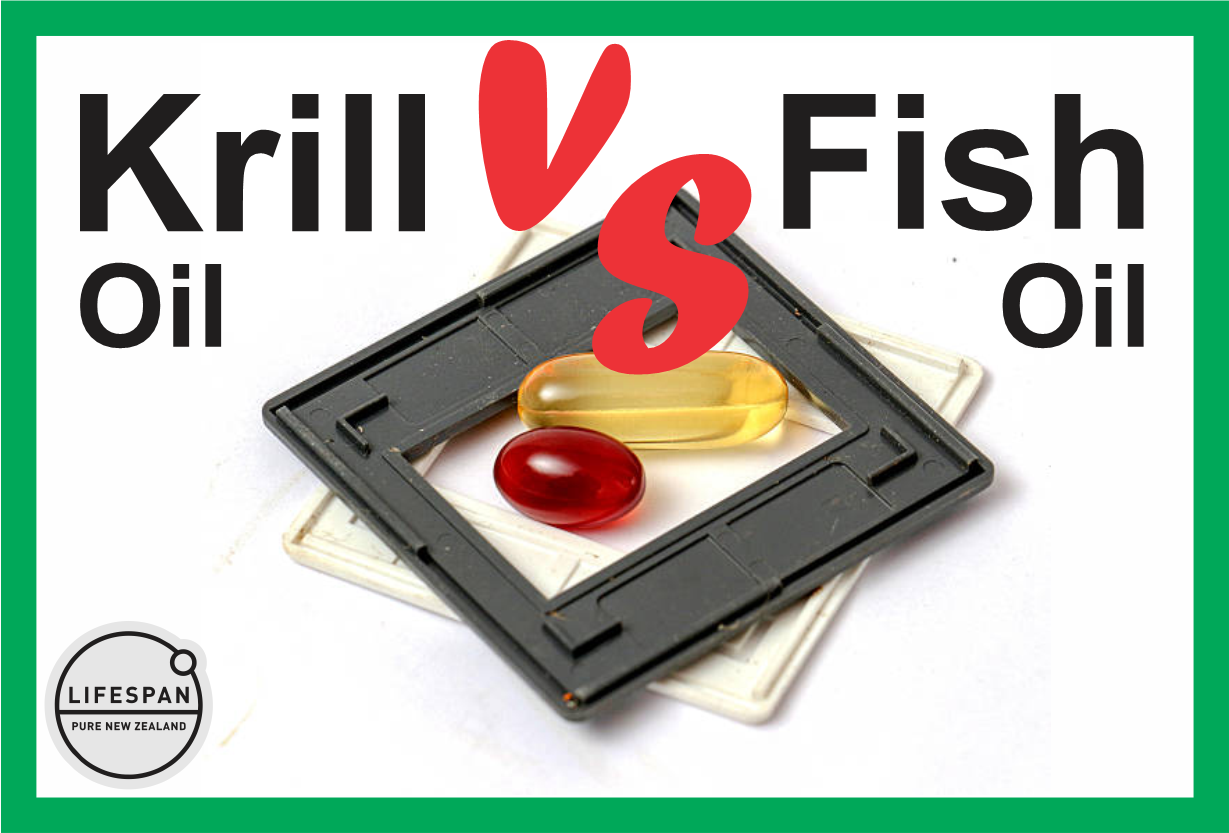
Natural Omega Fatty Acids
Lifespan's Krill Oil is a natural supplement designed to boost your health with essential omega-3 fatty acids and other marine nutrients.
It supports heart and brain health, improves joint comfort, and enhances overall wellness. Simple, effective, and sourced from nature.
Recent posts
-

-
 Choosing the Best Krill Oil SupplementBy Ben Winters
Choosing the Best Krill Oil SupplementBy Ben Winters

About the Author
Drawing on his expertise in marine biology, Ben Winters is integral to Lifespan's mission, particularly in procuring top-tier, eco-friendly marine supplements, such as krill oil.
His extensive knowledge of marine-based nutrients is a cornerstone in maintaining our products' high standards. Dedicated to both research and eco-conscious methods, Ben ensures that our nature-inspired health supplements are efficacious and adhere to environmental ethics.

Krill Oil Supplements vs Fish Oil Supplements
By Ben Winters
Krill Oil and Fish Oil are often used in natural supplements, as they are renowned for their rich Omega-3 content.
Krill Oil and Fish Oil, are both rich in Omega-3 fatty acids, and offer a variety of health benefits that make them popular natural supplements. These essential fatty acids play a fundamental role in maintaining optimal health.
One of their key advantages is their ability to promote cardiovascular well-being. Regular consumption of Omega-3s, found in both Krill and Fish Oil, has been linked to supporting heart health and helping maintain healthy blood pressure.
Krill Oil and Fish Oil are also known for their cognitive benefits, providing support for healthy brain function throughout life.
Understanding the sourcing and production processes of both fish oil and krill oil is crucial for consumers to make informed choices about their preferred Omega-3 supplements, considering factors such as sustainability, purity, and quality.
Fish oil, as the name suggests, is derived from fish.
The most commonly used fish for oil extraction include mackerel, salmon, sardines, and anchovies. These fish are typically sourced from various regions around the world, with some regions renowned for their high-quality fish oil production.
Krill oil, in contrast to fish oil, is derived from tiny, shrimp-like marine creatures called krill.
Krill are primarily found in the pristine waters of the Antarctic Ocean, making the region a key source for krill oil. One advantage of krill as a source is its relatively low position in the marine food chain, which can reduce the risk of bioaccumulation of contaminants like mercury.
The production of krill oil involves several steps to extract and refine the valuable oil.
After harvesting, the krill are processed to separate their oil-rich parts, including the krill's body and shell. These parts are then subjected to a cold extraction process to obtain the krill oil. The oil is subsequently purified to remove impurities and contaminants, ensuring the highest quality product.
To produce fish oil, firstly the selected fish are carefully processed to separate their flesh from the oil-rich parts, such as the liver.
These oil-rich parts are then subjected to a process called rendering, which extracts the oil. This oil is then purified to remove impurities, such as heavy metals and contaminants, through processes like molecular distillation. Finally, the purified fish oil is often encapsulated or bottled for consumer use.
Krill oil and fish oil both offer a wide range of health benefits due to their rich Omega-3 fatty acid content, but they differ in some key aspects that may make one more suitable than the other depending on individual health goals and preferences.
Both krill oil and fish oil have been associated with supporting cardiovascular health. However, some studies suggest that krill oil may have a slight advantage in terms of absorption and effectiveness due to its phospholipid structure. This means that krill oil may require a lower dosage to achieve the same cardiovascular benefits as fish oil.
With regard to supporting cognitive health, some research suggests that krill oil may offer better bioavailability of DHA to the brain, potentially making it more effective in supporting cognitive function.
Both supplements have shown promise in supporting joint health. However, krill oil's unique combination of Omega-3s and astaxanthin, which is a powerful antioxidant, may provide additional joint health benefits.
One potential drawback of fish oil is its tendency to cause digestive issues, such as fishy aftertaste and gastrointestinal discomfort in some individuals. Krill oil, with its phospholipid structure, is believed to be more gentle on the digestive system and less likely to cause these side effects.
Both krill oil and fish oil offer numerous health benefits, but their differences in absorption, potential side effects, and unique components like astaxanthin may make one more suitable than the other for specific individuals and health concerns.
When choosing between these supplements, it's essential to consider your specific health goals, dietary preferences, and any potential sensitivities or intolerances to make an informed decision.
Consulting with a healthcare professional can also provide personalised guidance on which Omega-3 supplement is the best fit for you.


